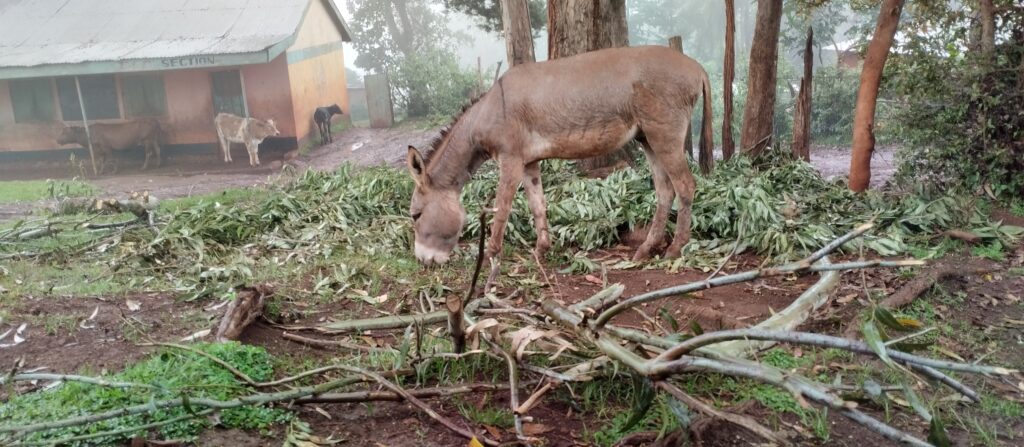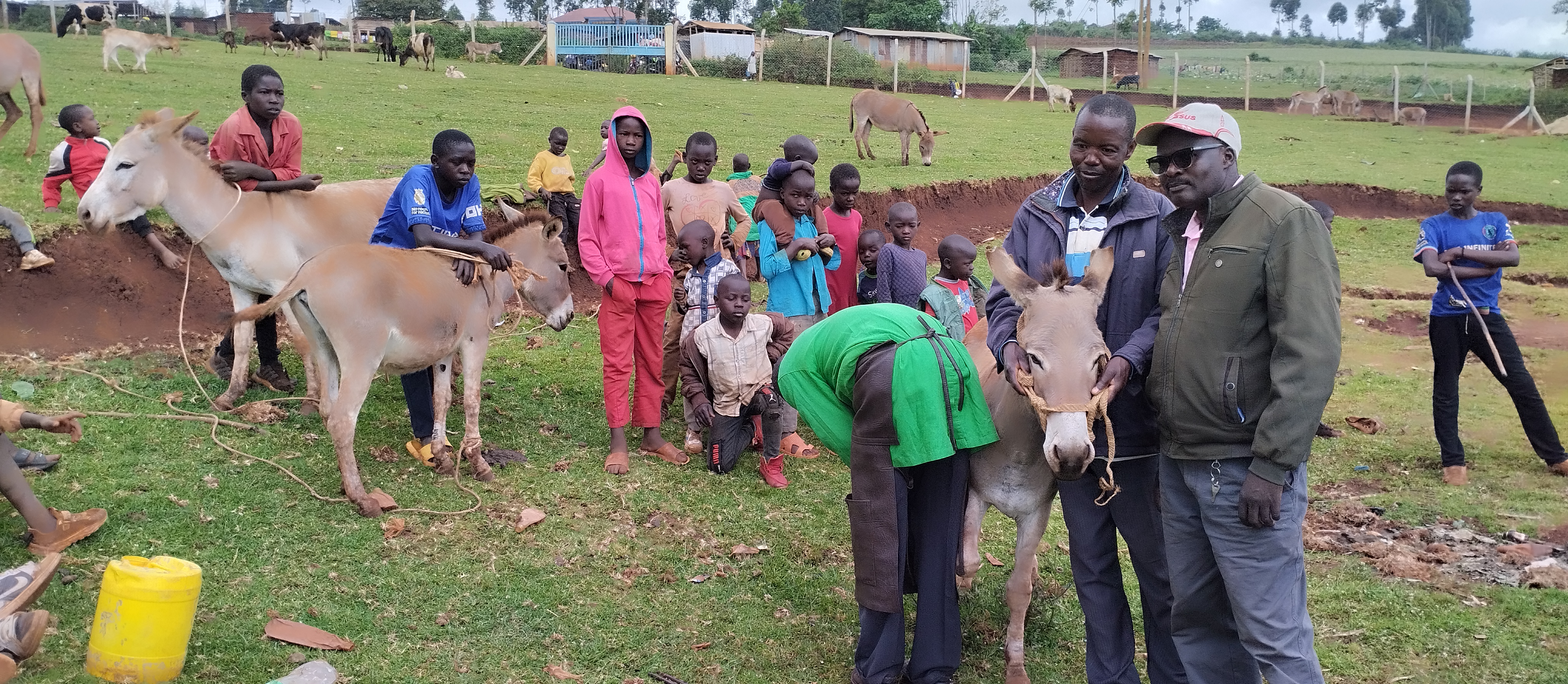Farmers Advised To Take Special Care of Donkeys During Rainy Season

By Isabella Maua
Donkey farmers in Kenya remain faced with the challenge of taking tender care of their animals, despite the many institutional frameworks put in place to protect donkeys’ welfare.
James Kiptoo lives in Banandega in Chepyuk ward, Mt. Elgon Sub County; he owns four donkeys, which he admits have painted him the ‘rich guy in town’ despite the many challenges he has had to encounter in maintaining their overall welfare over time.
“What many people don’t know is that donkey farmers are just like any other cattle or poultry farmers because we need to buy back mats for them, friendly harnesses, and medication, which are not easily available, especially for us living in very remote areas,” cited Kiptoo.
Naomi Chebeni echoes Kiptoo’s sentiments, citing that in most cases, during adverse weather conditions, their donkeys endure much discomfort, especially on their hooves.
“When it rains here, it’s terrible! Roads and feeder routes become impassable not only to humans but also to our animals, who find it very difficult to maneuver their way around the muddy mountainous terrain,” she explains.
According to Jack Ndiema, who works in the livestock department within Mt. Elgon Sub County, the beast of burdens undergo numerous challenges during rainy seasons, including but not limited to foot rot, abscesses, and even a lack of proper feeding.
John Maghas confessed that in most cases, they don’t put much effort into focusing on donkey welfare; hence, they feel neglected, especially during adverse weather conditions.
Among other challenges these donkeys face is negligence from their keepers, where they are left with no shelter and have to be rained on overnight and sometimes even during the day.
According to Kennedy Wanyonyi of the Ripple Effect, farmers are encouraged to grow Bracharia grass which has a Crude Protein of 12 – 16% with a 25-35 day re growth of nitrogen fertilized pasture.
“Bracharia is highly nutritious for the donkeys, and besides that they should be given clean water for drinking to boost their health and wellbeing,” he advised.
He further noted: “We have witnessed many donkeys being overloaded and beaten mercilessly by their users, who at times try to break their tails whenever they refuse to move because of the torture and pressure they’ve undergone.”
Since donkeys evolved to live in arid desert conditions with more upright, smaller, tougher, and more elastic hooves, they ought to be kept clean with dry bedding and well-drained fields at all times.
Their feet must be trimmed at least once every eight weeks by a farrier who has experience with donkeys since they are prone to weak hoof walls or seedy toes and the infection of frogs, commonly known as thrush.
Needless to say, donkeys are not only workers but also our lovely companions who need proper nutrition; hence, they need high-fiber and low-sugar feeds at all seasons to keep them healthy and happy.








